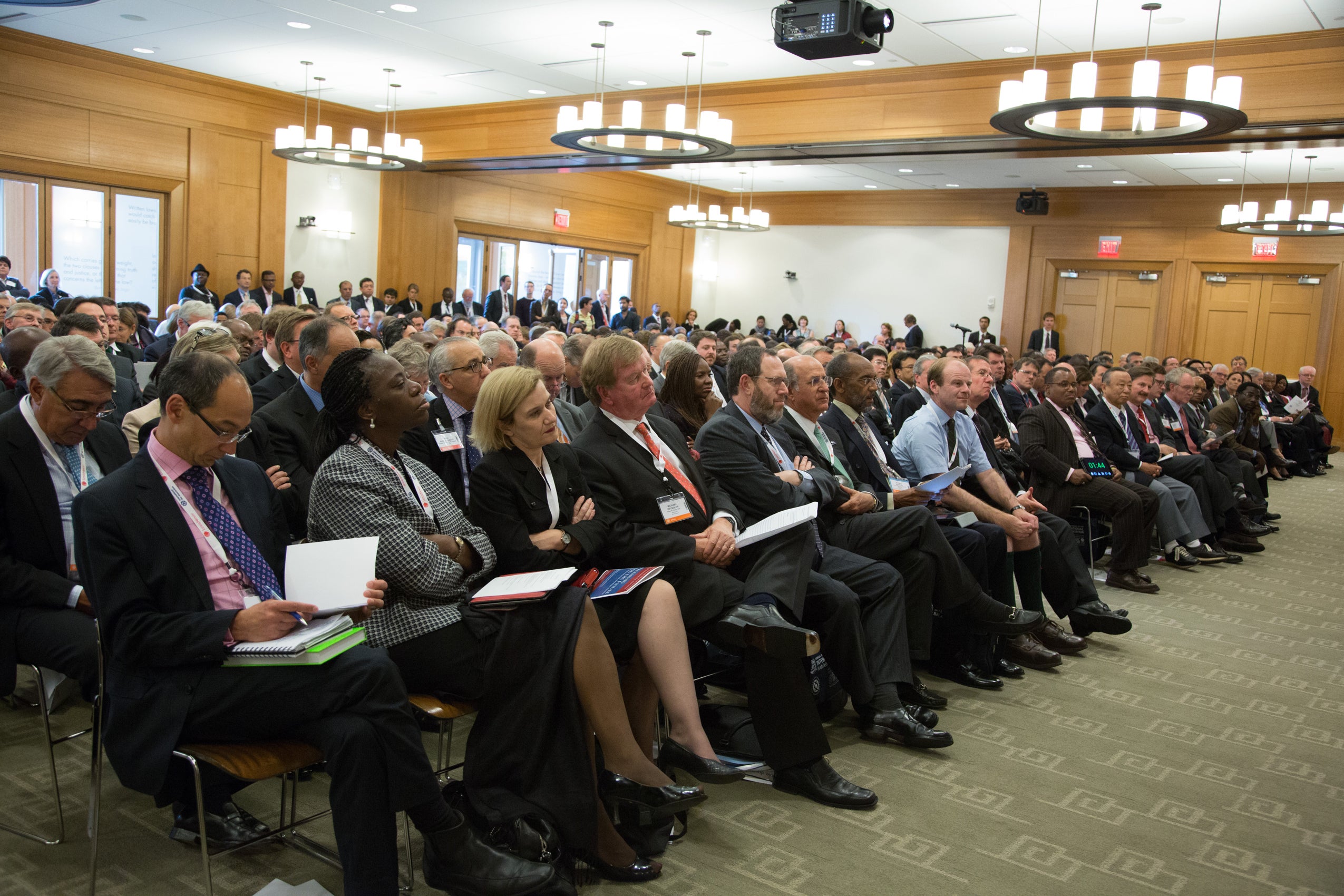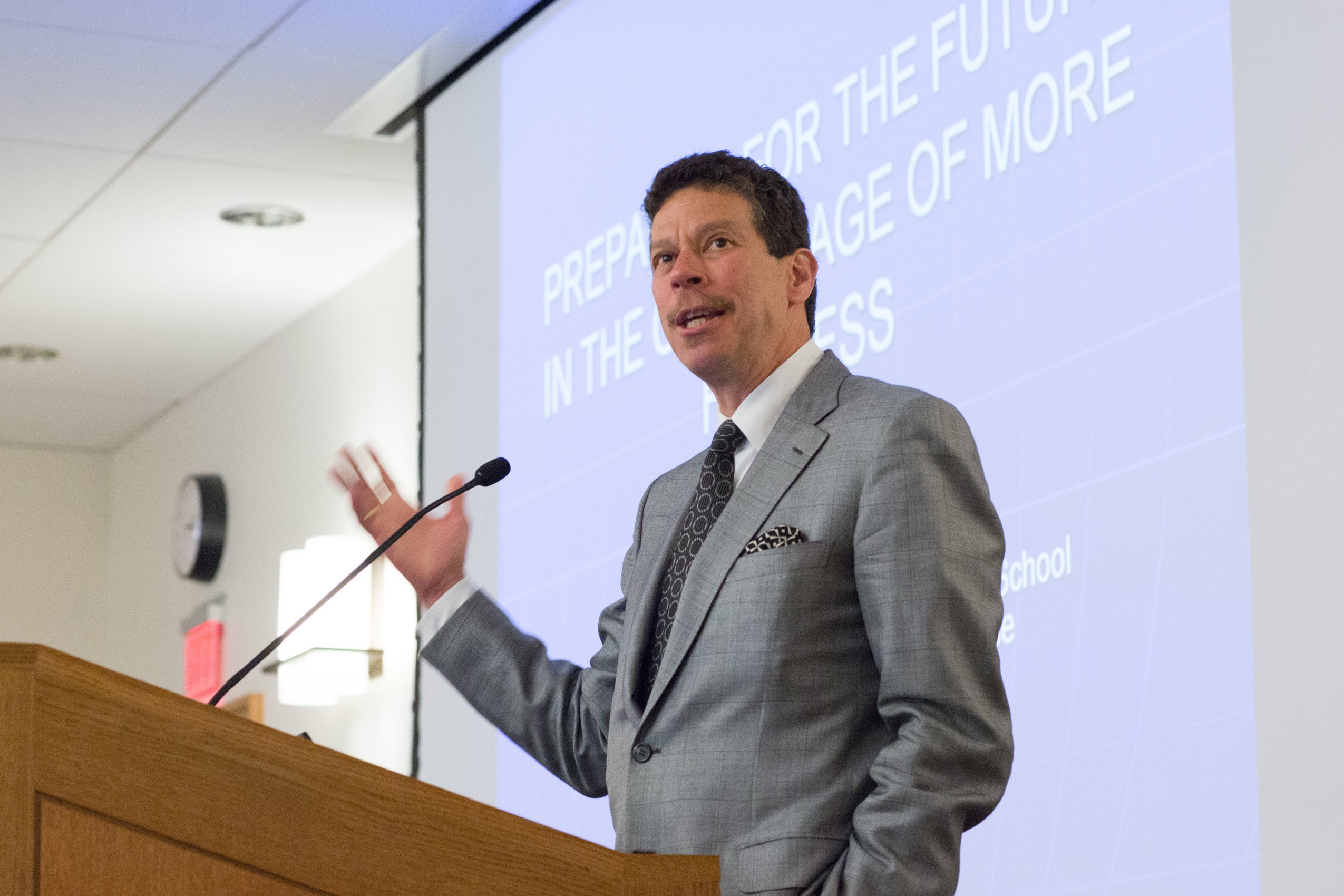
Thousands of international attorneys gathered in Boston in October to attend the week-long International Bar Association’s 2013 Annual Conference. On Oct. 9. Harvard Law School’s Program on the Legal Profession hosted one of the conference’s featured events at HLS: “Preparing for the Future—Changes in Structures, Technology & Regulation,” a keynote address and panel discussions that focused on the future of the global legal profession.
Dean Martha Minow introduced International Bar Association President Michael J. Reynolds and IBA Bar Issues Commission Chairman Horacio Bernardes Neto and welcomed conference attendees to the school. Addressing the crowd, Minow said, “The nature of law practice, the nature of international business, the nature of communications, every aspect of our lives is changing minute by minute, and you are creating the structures, you are creating the technologies, you are creating the regulations, and you are creating the values that will guide us in the future.”
Harvard Law School Professor David Wilkins, vice dean for Global Initiatives on the Legal Profession and director of the Program on the Legal Profession, delivered the keynote address.
In recent years, he stated, profound changes have altered the nature of the global legal profession including the globalization of economic activity, the rise of information technology and the “blurring together of traditional categories of knowledge and organization,” such as business and law or the public and private sector.
“Are we entering into some sort of fundamental paradigm shift in which things are going to radically transform in the legal profession, or is it a temporary correction?” Wilkins posited that it might be something in between—neither the death of “big law” nor a return to pre-recession times.
With the democratization of legal knowledge, he said, lawyers in the global economy must find new ways to navigate the profession. This era calls for new ways of practicing law, new ways of measuring the quality of legal services, and new ways to leverage technology.
“These things are reshaping the world, so why won’t they reshape us?” asked Wilkins. He emphasized the need for research during this restructuring, emphasizing the three major goals of Harvard’s Program on the Legal Profession: systematic and unbiased research, new ways of preparing law students to face these challenges, and forming a new partnership between the profession and the academy.
Wilkins’ keynote was followed by a panel featuring Laurel S. Terry, Harvey A. Feldman Distinguished Faculty Scholar at Penn State’s Dickinson School of Law, Jonathan Goldsmith, Council of Bars and Law Societies of Europe, and Gopal Subramanium, senior advocate at the Supreme Court of India. Each speaker presented commentary on the keynote speech, and offered suggestions on how to move forward effective in the global legal economy.
The panel was followed by a discussion with Francisco Roggero of the law firm Bulló Tassi Estebenet Lipera Torassa Abogados in Buenos Aires and Aminu Gamawa LL.M. ’10, a human rights and conflict resolution expert and S.J.D. candidate at HLS.
The International Bar Associations’ annual conference is the largest gathering of international lawyers from around the world. This year, the event attracted over 5,500 participants representing 134 countries. The former secretary of state, Madeline Albright provided the keynote address at the Opening Ceremony. Other speakers included U.S. Supreme Court Associate Justice Stephen Breyer, Paul Volcker, Former Chairman of the Federal Reserve and Elizabeth Rindskopf-Parker, Former General Counsel of the CIA.
